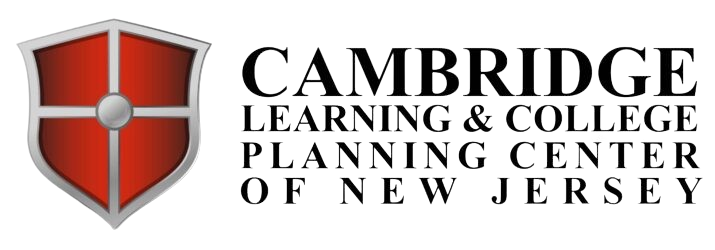
Increased Vocabulary Leads to Increased
Success , Enrichment & Opportunity for students
************************************
By Mr. Justin Buffer, MSE, Founder, Owner,
and Educational Director of the
Cambridge Learning Center of NJ
“One forgets words as one forgets names. One’s vocabulary needs constant fertilizing or it will die.” – Evelyn Waugh
*****************************************************************
People often ask me, “Mr. Buffer, how can I help my children become better readers?” Parents ask me this question no matter what the age of their child is. While the obvious standard answer is that reading more will make them better at it, I want to focus on something else here. In addition to reading, just as important is helping young people build their vocabulary. I am not talking here about the traditional ways of teaching reading and studying vocabulary that they have in school where students are given a set of words and their definitions, and have to memorize them for a test. This can he helpful and important, of course, but there are things outside of school that a parent can do to supplement this formal teaching. These techniques can be done on an everyday basis to help children build their vocabulary. Let’s talk about some of them.
One of the things you can do every time your child hears a new word from conversation, television, radio, or any source and they ask you what it means, instruct them to go look it up. In the old days, this meant going to a dictionary. That still works, but you can also direct them to a smartphone, a computer, or any other modern technology where you can look up words. The important point is to instill in a youngster the desire and knowledge of how to look up words they don’t know.
Encouraging your child to keep a vocabulary journal is also a great idea. At the Cambridge Learning Center, we give students a Personal Vocabulary Journal for this very reason. We stress that it is not just for the words we teach them at Cambridge, but also for any words they come across from their teachers, friends, or in conversations with adults. We want to make our students aware that they are exposed to new words from all facets of their life and to pounce on them. Keeping the words in their journal and regularly going back to study them is going to increase and refine their vocabulary. As a parent, you can look at this list with them. Help them learn the words and how to use them appropriately. I always encourage parents and students to use the new words together.
As an example, your child comes home and tells you she had fun with her friends at Chucky Cheese. This moment is your opportunity to say, “Well, what word have we learned recently that means fun?” Doing this will help children understand how to use their new words in their proper context.
If English is not your first language, this can be a challenge. That’s why I’m adding in the component that you can learn new vocabulary words with them. Together, you can both add new words to your vocabulary lists. Whether English is your first language or not, you can play a game together of substituting one word for another. This fun activity encourages using the vocabulary journal at home and everywhere else.
What else can you do to help them build their vocabulary? Don’t let any word go undiscovered. If they are doing a math problem, and it says, “Jimmy bought 13 pints of Amalaki,” and they don’t know what this fruit is (an Indian gooseberry), have them look it up. Train them that they are always in the learning and vocabulary acquisition process. When you help foster, encourage, and compliment kids on their curiosity, their thirst for knowledge will blossom, and their vocabulary along with it.
The good part about learning vocabulary is it actually helps someone become a better reader. Research affirms this, as does our experience here at Cambridge. Also, their new vocabulary seeps into writing assignments. I can tell you as an SAT teacher, and as the Founder, Owner, and Education Director here, that vocabulary is a vital part of reaching the highest scores on the SAT.
As adults, we know that a good vocabulary enhances our stature in the professional world. This is also true for students. Having a command of language helps them when they need to write papers or make presentations. It makes a positive impression on their teachers. It will also serve the students well when they go out into the world. It will have a positive impact when they interview for after-school jobs, or when they start applying for college.
I have seen everything I related to you here make a positive influence on students’ futures and lives again and again. With a good vocabulary, reading and writing become easier. Even for adults, I have seen a tremendous difference in their lives when they apply themselves to improving and expanding their vocabulary. Many parents of our students at Cambridge do not speak English. When we encourage them to do what I advocate here with their children, the results are impressive. Both parent and child increase their vocabulary and grow together.
I cannot stress enough how important a continuously improving vocabulary is. It exemplifies what I call the difference between having potential and living our potential. Somebody can be functioning with a high IQ, which we often see at the learning center. However, when a student’s vocabulary is lacking, he or she will not be able to accomplish as much as they want or can in school, which, as we all know, can have long-term implications.
An emphasis on vocabulary is surely a key to advancing in school or in life, and we are proud at Cambridge to help students begin their journeys toward growing their personal lexicon.

